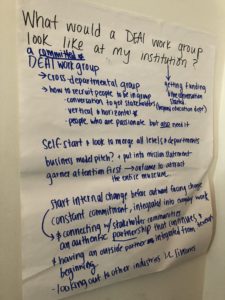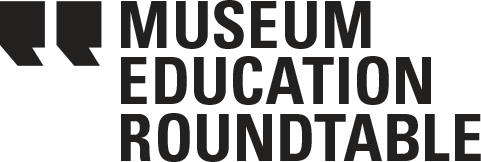Looking Inward: Insights from the 2018 MER Survey
In the spring of 2018, the Museum Education Roundtable (MER) administered an online survey to both MER members and non-members with the purpose of understanding our members and potential members, how they perceive and use  MER and its resources, as well as what they want and expect from us moving forward. The 2018 survey followed and expanded upon our 2015 survey, enabling us to detect any differences over time. Results of the survey are robust, representing the voices of 289 respondents, of whom 42% are members, 48% are not members, and 10% are unsure. We’d like to offer a big “thank you!” to everyone who completed and helped disseminate the survey. We will be using the results of the survey to inform our decision making around our work and initiatives. While there are many findings relevant to the inter-working of MER, one finding in particular stands out (SCREAMS OUT, really) as being urgently in need of attention.
MER and its resources, as well as what they want and expect from us moving forward. The 2018 survey followed and expanded upon our 2015 survey, enabling us to detect any differences over time. Results of the survey are robust, representing the voices of 289 respondents, of whom 42% are members, 48% are not members, and 10% are unsure. We’d like to offer a big “thank you!” to everyone who completed and helped disseminate the survey. We will be using the results of the survey to inform our decision making around our work and initiatives. While there are many findings relevant to the inter-working of MER, one finding in particular stands out (SCREAMS OUT, really) as being urgently in need of attention.
Most significant among the results, though not surprising, is that there has been virtually no shift in the demographics of our audience since 2015. In particular, we learned in comparing responses from the 2015 survey to the present survey that there has been no real change in the diversity of our audience: 89% self-identified as white in 2015 and 86% did the same in 2018. Percentages of Asians also remained similar at 5.9% and 6.1%. There is a small drop in numbers of Hispanics/Latinx and African-Americans in 2018, but this could be because there was an additional option to select multi-ethnic, something not available in 2015. Essentially, the numbers have all remained largely the same. Like I said, this did not surprise us, and it reflects the museum field in general, but given what MER stands for as an organization, it feels negligent not to prioritize addressing this lack of diversity.
In fact, one of MER’s strategic goals, since 2016, has been to “advance diversity and inclusion within MER and the museum field.” And, since 2016, we have taken some bold steps toward this goal in our efforts at outreach through the Journal of Museum Education (JME) and the annual Forum. Specifically, two back-to-back issues of the JME were devoted to issues of race and racism in museums— JME 42.1: Race, Dialogue, and Inclusion: A Museum on the National Stage and JME 42.2: Identifying and Transforming Racism in Museum Education. Our 2017 Forum speakers in Boston were Keonna Hendrick and Marit Dewhurst, co- guest editors of JME 42.2. and our 2018 Forum speaker in DC was Nicole Ivy who spoke about American Alliance for Museums’ (AAM) new report, Facing Change: Insights from AAM’s DEAI Working Group (read more about that Forum in our blog!).

Our strategic goal and recent associated initiatives parallel those of other similar organizations and museums across the United States. In particular, with the release of Facing Change there is growing resolve among museums to increase diversity, equity, accessibility, and inclusion (DEAI). While DEAI issues are not new to museums, there is a palpable feeling that if not now, then when—and how?
Though we at MER hope our recent efforts are worthy, the real insight into understanding how MER can further address DEAI issues has come from looking those survey results straight on and acknowledging that as Ivy states (and we find inspiration in), “effective inclusion work begins inside the structures of our museums [and organizations] and within each of us.” And thus, beginning in our 2018-19 year, and like many museums are beginning to do in earnest (through new campaigns like that of the Ford and Walton Family Foundations to increase diversity in museum leadership), MER is turning our DEAI efforts inward toward achieving greater racial, ethnic, and geographic diversity among our board members, membership, and authors through some very concrete actions:
- Through a task force of the board, we are in the process of writing an organizational DEAI statement.
- Another board task force will consider ways to reduce the financial burden of board service and create more equitable opportunities. For instance, taking a cue from the corporate world we are “flipping the script” from expecting board service to be done without compensation to reconfiguring our budget model to provide board members a stipend to help make board service more possible for more people.
- In fiscal year 2018-19, we budgeted for a board member to attend at least one conference or convening where we can initiate relationships with people currently underrepresented in MER/the JME.
- We have shifted the language of Board Nominations to Board Recruitment, which conveys an outward-facing, proactive process, rather than an insular one. This is the beginning of a revision of the entire board recruitment process.
We are excited and energized by these very real, very concrete actions and hope you will be too.
Stephanie Downey is Director at RK&A, and serves on the Board of Directors for the Museum Education Roundtable as Treasurer.

